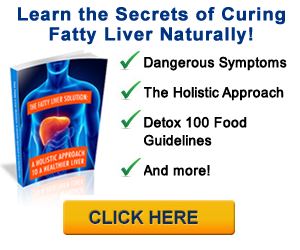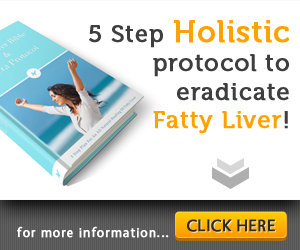How To Reverse Fatty Liver Disease Through Diet And Lifestyle
Are you struggling with fatty liver disease and looking for natural ways to reverse its effects? Look no further! This article will provide you with guidance on how to tackle this condition through simple changes in your diet and lifestyle. By adopting healthier eating habits and incorporating physical activity into your routine, you can effectively combat fatty liver disease and restore the health of your liver. Keep reading to discover the key steps you can take to reverse this condition and improve your overall well-being.
Understanding Fatty Liver Disease
Fatty liver disease, also known as hepatic steatosis, is a condition characterized by the accumulation of fat in the liver cells. This excessive fat buildup can impair liver function and lead to inflammation and scarring.
Causes of Fatty Liver Disease
There are two main types of fatty liver disease: alcoholic fatty liver disease (AFLD) and nonalcoholic fatty liver disease (NAFLD). AFLD occurs due to excessive alcohol consumption, while NAFLD is associated with factors such as obesity, insulin resistance, high blood sugar, and high cholesterol. Other underlying causes include viral hepatitis, certain medications, rapid weight loss, and genetic factors.
Symptoms of Fatty Liver Disease
Fatty liver disease often progresses silently without noticeable symptoms. However, if symptoms do occur, they may include fatigue, abdominal discomfort, jaundice, enlarged liver, and weakness. It’s important to note that these symptoms can vary in severity and may not always be present.
Diagnosis of Fatty Liver Disease
To diagnose fatty liver disease, your doctor may perform a physical examination, review your medical history, and order tests such as blood tests, imaging studies (ultrasound, MRI, or CT scan), or a liver biopsy. These diagnostic tools help assess the extent of liver damage and determine the appropriate treatment plan.
The Impact of Diet on Fatty Liver Disease
Diet plays a crucial role in the management and reversal of fatty liver disease. Making dietary modifications can help reduce fat accumulation in the liver and improve overall liver function.
Importance of Diet in Fatty Liver Disease
A healthy diet is essential in supporting liver health and reversing fatty liver disease. It helps in maintaining a healthy weight, controlling blood sugar levels, reducing inflammation, and improving insulin sensitivity. By making dietary changes, you can address the underlying causes of the condition and promote optimal liver function.
Foods to Avoid with Fatty Liver Disease
To effectively manage fatty liver disease, it is important to limit or avoid certain foods that can further contribute to liver damage. These include foods high in saturated and trans fats, processed foods, sugary beverages, refined carbohydrates, and excessive alcohol consumption. These foods can exacerbate inflammation, increase fat accumulation, and worsen liver function.
Foods to Include in Your Diet
On the other hand, incorporating certain foods into your diet can support the reversal of fatty liver disease. Opt for a diet rich in fruits, vegetables, whole grains, lean proteins, and healthy fats. These include foods like leafy greens, berries, fatty fish, nuts, seeds, and olive oil. These nutrient-dense foods provide essential vitamins, minerals, antioxidants, and omega-3 fatty acids, all of which promote liver health.
Lifestyle Changes for Fatty Liver Disease Reversal
In addition to dietary modifications, certain lifestyle changes can significantly contribute to the reversal of fatty liver disease.
Exercise and Physical Activity
Regular physical activity is crucial in managing and reversing fatty liver disease. Engaging in aerobic exercises, such as walking, jogging, cycling, or swimming, helps burn excess fat, improve insulin sensitivity, and promote weight loss. Aim for at least 150 minutes of moderate-intensity exercise or 75 minutes of vigorous-intensity exercise per week, as recommended by health experts.
Weight Management
Maintaining a healthy weight is essential in managing fatty liver disease. Excess body weight, especially around the abdomen, is closely linked to the development and progression of the condition. By adopting a balanced diet and engaging in regular exercise, you can achieve and maintain a healthy weight, reducing the strain on your liver.
Limiting Alcohol Consumption
For individuals with alcoholic fatty liver disease, the most effective way to reverse the condition is to abstain from alcohol completely. Alcohol consumption significantly contributes to liver damage and inflammation. If you have nonalcoholic fatty liver disease, it is still recommended to limit alcohol intake, as it can exacerbate liver damage and interfere with liver regeneration.
Specific Diets for Fatty Liver Disease Reversal
Several specific diets have shown promise in promoting fatty liver disease reversal and improving liver health.
Mediterranean Diet
The Mediterranean diet, known for its emphasis on fruits, vegetables, whole grains, legumes, fish, and olive oil, has been found to have numerous health benefits, including liver health. It is rich in antioxidants, healthy fats, and fiber, which help reduce inflammation, improve insulin sensitivity, and lower the risk of fatty liver disease progression.
Low-Carb Diet
A low-carb diet, such as the ketogenic diet or a modified low-carbohydrate diet, can also be effective in managing fatty liver disease. By reducing carbohydrate intake and increasing healthy fats and proteins, this diet promotes weight loss, improves insulin sensitivity, and reduces fat accumulation in the liver.
Plant-Based Diet
A plant-based diet, centered around fruits, vegetables, whole grains, legumes, nuts, and seeds, can provide numerous health benefits, including liver health. Plant-based diets are naturally low in saturated fats and cholesterol and rich in fiber and antioxidants. They help reduce inflammation, promote weight loss, and improve overall liver function.
Supplements for Fatty Liver Disease
Certain supplements can complement dietary and lifestyle changes in the management of fatty liver disease.
Milk Thistle
Milk thistle, a herbal supplement derived from the milk thistle plant, has been extensively studied for its potential hepatoprotective properties. It is believed to help reduce liver inflammation, support liver cell regeneration, and protect against oxidative damage. However, it is important to consult with your healthcare provider before starting any supplement.
Omega-3 Fatty Acids
Omega-3 fatty acids, commonly found in fatty fish, walnuts, flaxseeds, and chia seeds, have been shown to reduce inflammation and improve liver function. These essential fatty acids can help decrease fat accumulation in the liver and promote overall liver health.
Vitamin E
Vitamin E, a powerful antioxidant, has shown promise in managing fatty liver disease. It helps reduce oxidative stress, inflammation, and liver damage. Foods rich in vitamin E include almonds, spinach, sunflower seeds, and avocados. However, high doses of vitamin E should only be taken under the guidance of a healthcare professional.
Hydration and Fatty Liver Disease Reversal
Proper hydration plays a vital role in liver health and the reversal of fatty liver disease.
The Importance of Hydration
Staying well-hydrated helps support liver function by aiding in the elimination of toxins and waste products. Sufficient hydration also ensures proper blood flow to the liver, promoting its overall health and aiding in the processes of fat metabolism and liver regeneration.
Recommended Daily Water Intake
The recommended daily water intake varies depending on factors such as age, sex, weight, and physical activity level. However, as a general guideline, aim to consume at least 8 cups (64 ounces) of water per day. This can be achieved by sipping water throughout the day, consuming hydrating foods such as fruits and vegetables, and limiting the intake of sugary beverages.
Controlling Blood Sugar Levels
Stabilizing blood sugar levels is crucial in managing fatty liver disease. Elevated blood sugar levels can contribute to insulin resistance, inflammation, and the accumulation of fat in the liver.
Impact of Blood Sugar on Fatty Liver Disease
When blood sugar levels are consistently high, the liver converts the excess sugar into fat, leading to increased fat accumulation in the liver. This process contributes to the development and progression of fatty liver disease. It is essential to maintain stable blood sugar levels to prevent further liver damage.
Foods to Stabilize Blood Sugar
To stabilize blood sugar levels, focus on consuming low-glycemic index foods that have minimal impact on blood sugar. These include whole grains, legumes, non-starchy vegetables, lean proteins, and healthy fats. Avoid or limit the intake of sugary foods, refined carbohydrates, and sweetened beverages that cause rapid spikes in blood sugar.
Reducing Inflammation
Reducing inflammation is a key aspect of managing fatty liver disease. Chronic inflammation can worsen liver damage and interfere with liver regeneration.
Anti-Inflammatory Foods
Incorporating anti-inflammatory foods into your diet can help reduce inflammation and improve liver health. These include fatty fish (salmon, mackerel), walnuts, almonds, flaxseeds, turmeric, ginger, leafy greens, cruciferous vegetables (broccoli, cauliflower), and olive oil. These foods are rich in antioxidants, omega-3 fatty acids, and other compounds that suppress inflammation.
Inflammatory Foods to Avoid
Conversely, there are certain foods that can promote inflammation and should be avoided or limited. These include processed meats, refined carbohydrates, sugary foods and beverages, trans fats, and foods high in saturated fats. By minimizing the consumption of these inflammatory foods, you can support the reversal of fatty liver disease.
Stress Management and Fatty Liver Disease
Managing stress is crucial in promoting overall health, including liver health. Chronic stress can contribute to the development and progression of fatty liver disease.
The Connection Between Stress and Fatty Liver Disease
Stress triggers the release of stress hormones, such as cortisol, which can contribute to insulin resistance, inflammation, and the accumulation of fat in the liver. Additionally, stress can lead to unhealthy coping mechanisms such as emotional eating or excessive alcohol consumption, which further exacerbate liver damage.
Stress-Relief Techniques
To effectively manage stress, incorporate stress-relief techniques into your daily routine. These can include practices such as meditation, deep breathing exercises, yoga, regular exercise, getting enough sleep, spending time outdoors, and engaging in activities you enjoy. Finding healthy ways to cope with stress can significantly improve liver health and overall well-being.
Monitoring and Evaluation
Regular monitoring and evaluation are crucial in the management of fatty liver disease. It allows you and your healthcare provider to track progress, make necessary adjustments to your treatment plan, and ensure optimal liver health.
Regular Doctor Check-ups
Schedule regular check-ups with your healthcare provider to monitor the progression of fatty liver disease and assess the effectiveness of your treatment plan. This may include blood tests to measure liver enzyme levels, imaging studies to evaluate liver health, and discussions about lifestyle modifications and any necessary medication adjustments.
Validating Progress
In addition to medical evaluations, keep track of your progress through regular self-checks. Monitor changes in your weight, energy levels, symptom frequency, and overall well-being. Celebrate the positive changes you observe and use them as motivation to continue making healthy choices for your liver and overall health.
In conclusion, understanding the causes, symptoms, and diagnosis of fatty liver disease is essential in addressing this condition effectively. By implementing dietary modifications, embracing a healthy lifestyle, considering specific diets, incorporating supplements, staying hydrated, managing blood sugar levels, reducing inflammation, and prioritizing stress management, you can take control of your fatty liver disease and move towards its reversal. Remember to consult with your healthcare provider for personalized advice and guidance throughout your journey to a healthier liver.

